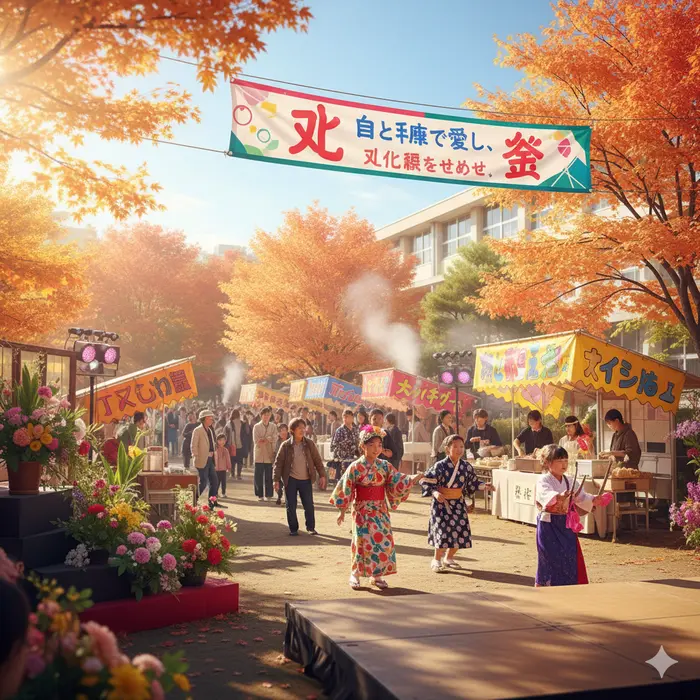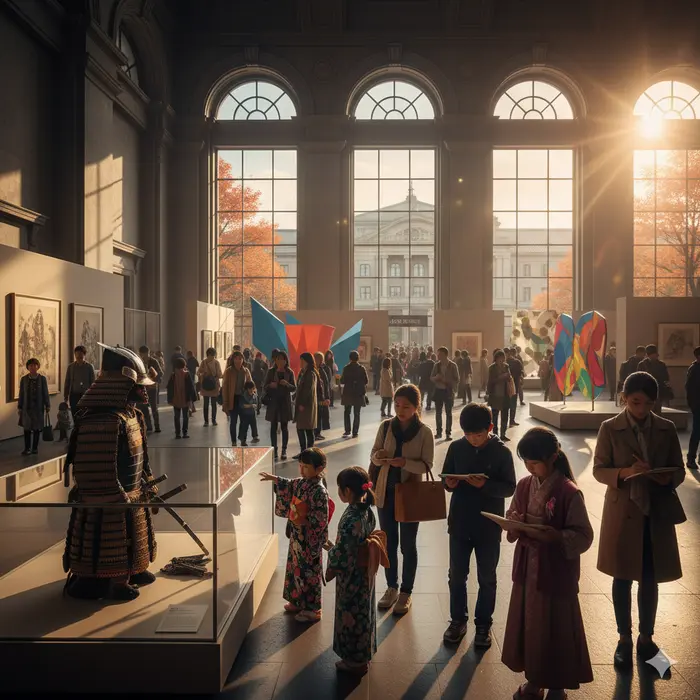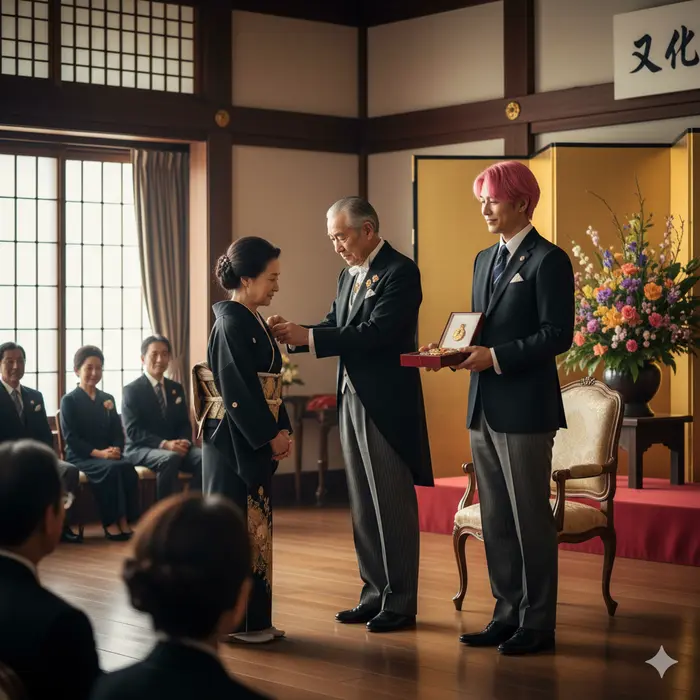Culture Day in Japan
Use our holiday API to get the exact date of Culture Day in Japan in every year.
Japan's public holidays take place throughout the calendar year, but they are few that are so characteristically Japanese like Culture Day (called Bunka no Hi, 文化の日 in Japanese) blending together the opposites of traditional and modern worlds.
This national holiday, which falls on November 3rd every year, is a celebration of the country’s rich culture, the arts, and scholarship. It is a day for peaceful coexistence, imagination, and the thirst for knowledge.
The Meaning and Purpose of Culture Day

According to the law, the primary aim of Culture Day is "to express the love of freedom and peace and to advance culture." This task embodies the very essence of the period in which it was created.
The observance is a nationwide festival of every imaginable aspect of culture. It takes in the whole gamut of Japanese traditions such as ikebana (flower arranging) and sado (tea ceremony), martial arts, and fine arts along with modern academic and scientific achievements. This day gives an opportunity to the Japanese nation to ponder over and to do Bible study about its peculiar cultural heritage, the arts, and sciences that are involved in the making of its society.
History: The Day of an Emperor's Birth to the Day of a New Constitution
The November 3rd date was purposely chosen, its history being a captivating representation of Japan's modern change.
- Emperor Meiji's Birthday: Initially, November 3 was celebrated as Tenchō-setsu, which was the birthday of the reigning Emperor Meiji (1852-1912). When he passed away, the day was officially designated in 1927 as Meiji-setsu in order to keep his memory alive and to remember the rapid change that he conducted.
- Post-War Constitution: The holiday of Meiji-setsu was canceled after World War II but the date turned out to be of great significance. The new, post-war Constitution of Japan was, on November 3, 1946, announced to the public officially.
- A New Holiday: The new constitution which this date was based on was different from the previous one as it was based on peace and culture rather than military power. Therefore, the date was redirected. In 1948, it was announced as Culture Day, a public holiday, which was to commemorate the new constitution and its non-violent, culture-oriented ideals.
How is Culture Day Celebrated?

Culture Day is not a day for grand parades loitering or religious celebrations. Rather, it is a day filled with numerous cultural happenings, shows, and regular rites all over the nation.
The Order of Culture Ceremony
The Order of Culture (Bunka Kunshō) award ceremony is the most prestigious event of the day. It is one of Japan's greatest distinctions and is, in person, the Emperor of Japan at the Imperial Palace in Tokyo.
The award is conferred upon the people whose contributions in the fields of culture, arts, or academic have been nothing less than excellent. The list includes the likes of painters, writers, scientists, actors, and even manga artists, thus illustrating the expansive and flexible definition of "culture" that the day celebrates.
Cultural Festivals and School Events
- Bunka-sai (Cultural Festivals): A lot of schools and universities organize their annual cultural festivals (called bunka-sai or gakuensai) on or around this day. These are massive, student-run events where clubs showcase their talents through plays, concerts, art exhibits, research presentations, and themed cafés. They are often open to the public and are a vibrant display of student creativity.
- Local Events: Towns and cities host their own festivals, often featuring traditional performing arts like gagaku (imperial court music), noh (classical theater), or taiko drumming. Parades, such as the Hakone Daimyō Gyōretsu (Feudal Lord's Procession) in Hakone, are also held to reenact historical events.
Free Museum Admissions
Japan's national and local museums and art galleries are inviting the public to take a walk through their collections on Culture Day. They have done so by making admissions free. So, besides going to the Tokyo National Museum or the National Museum of Nature and Science, it is a day full of great events for families and individuals.
What is Open or Closed on Culture Day?

Culture Day is a public holiday in Japan that is celebrated nationally and is thus a non-working day for the majority of the population.
- Banks, Post Offices, and Public Offices: All Closed.
- Schools and Universities: Closed but open to students during cultural festivals (bunka-sai).
- Shops and Restaurants: Retail stores, shopping malls, and restaurants are mostly open. It’s a great day for shopping and having dinner outside.
- Museums and Galleries: Most are OPEN. The cultural sector, as opposed to many other public institutions, welcomes this day. In fact, a few of them that are usually closed on Mondays (if November 3rd is one of those days) will be open for the holiday and will take the next Tuesday off instead.
A "Sunny Day" Tradition
One of the amazing things about Culture Day is that it has gained the reputation of being one of the clearest and sunniest days of the year in Japan. Statistically, it is referred to as a "sunny specific day" (tokuteibi), which is an unusually reliable day of good weather. Thus, it is not only the best autumn day to go out to the museum, participate in a festival, or just relax in the pleasant weather, but also the best day for all that.